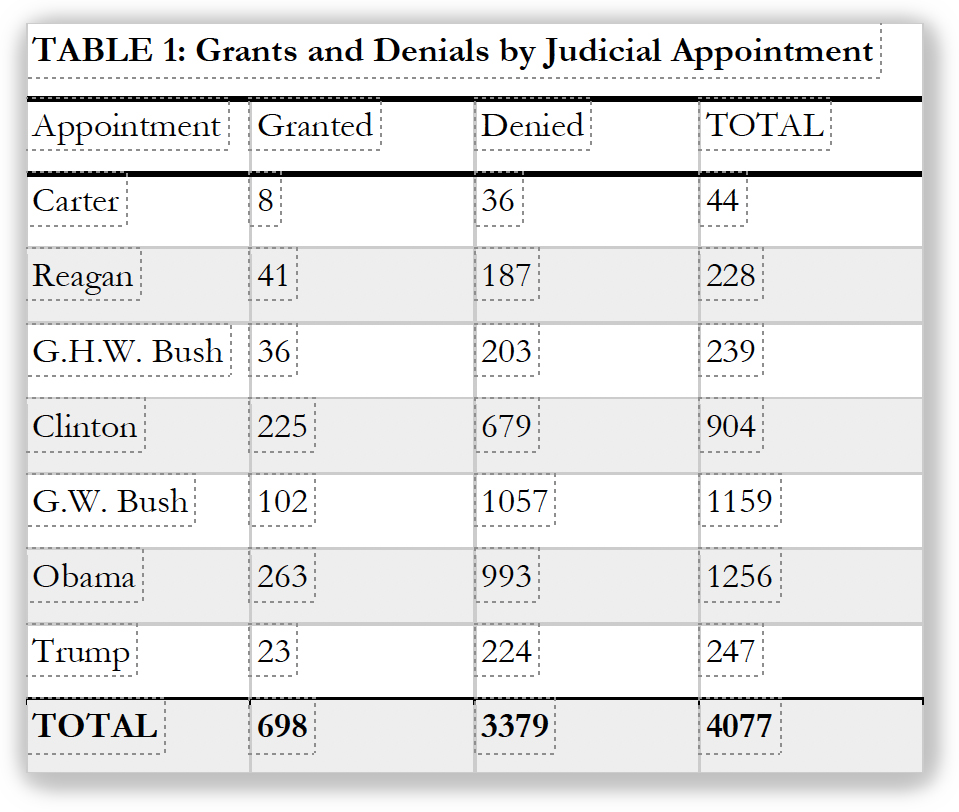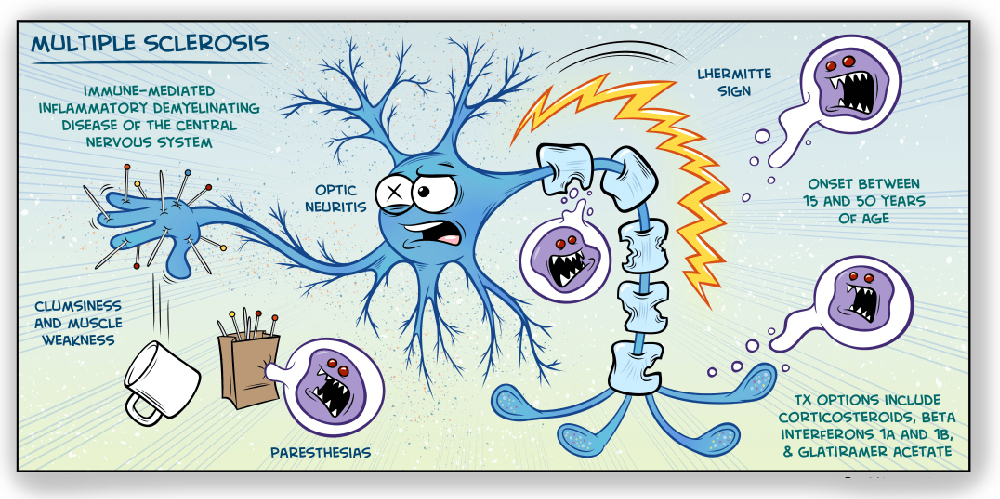We post news and comment on federal criminal justice issues, focused primarily on trial and post-conviction matters, legislative initiatives, and sentencing issues.

WHAT ARE THE ODDS?
By some accounts, as many as 10,000 motions for sentence reduction (compassionate release) under 18 USC § 3582(c)(1)(A)(i) because of the COVID-19 pandemic have been filed in the past year. Data regarding grants have been hard to come by, but estimates range from 500 to 1,000 compassionate release motions have been granted.
 A Georgetown University study made available last week studied over 4,000 compassionate release decisions issued since last April, comparing the rate of compassionate release grants to the ideology of the judge. The indicator used for the judge’s ideology – not a perfect correlation, probably, but a reasonable compromise – was the identity of the President who appointed the jurist. Obama, the reasoning goes, probably appointed relatively few John Birch Society members to the bench, just as Trump probably avoided card-carrying socialists.
A Georgetown University study made available last week studied over 4,000 compassionate release decisions issued since last April, comparing the rate of compassionate release grants to the ideology of the judge. The indicator used for the judge’s ideology – not a perfect correlation, probably, but a reasonable compromise – was the identity of the President who appointed the jurist. Obama, the reasoning goes, probably appointed relatively few John Birch Society members to the bench, just as Trump probably avoided card-carrying socialists.
Of the 4,077 decisions studied by the author, Victoria Finkle (an economist and financial journalist turned law student), 17.1% were granted. People with judges appointed by Bill Clinton – remember the FOBs? – did the best at 24.9%, while people with George W. Bush-appointed judges fared the worst at 8.8%. Obama judges granted 20.9%, Trump’s judges only 9.3%.
An unreported 6th Circuit decision last week garnered a lot of legal press attention, as judges took potshots at each other whether COVID-19 data from The Marshall Project, a criminal justice advocacy group that has been out front on reporting on COVID in prisons. But the judges’ spat is not what makes the opinion interesting.
Kwame Mathews, who has multiple sclerosis, filed for compassionate release. His district court turned him down, finding that the “possibility of contracting COVID-19” and multiple sclerosis do not fit into the four extraordinary and compelling circumstances set forth in USSG § 1B1.13, that Kwame “would be a danger to others and the community if released” per § 1B1.13(2). The district court depicted Kwame’s motion as arguing that “the spread of COVID-19 throughout the nation qualifies as a compelling and extraordinary circumstance” and did not address the situation at FCI Terre Haute. “Equally troubling,” the Circuit said, “is the district court’s treatment of Kwame’s multiple sclerosis. The court found without any substantiation that Kwame failed to assert that he has “a serious physical or medical condition or a serious functional or cognitive impairment that prevents him from providing self-care” and suggested that Kwame does not have “an actual medical condition.”
Noting that there is no cure for multiple sclerosis and that Kwame’s condition is unlikely to improve, the 6th said multiple sclerosis certainly qualifies as an ‘obvious’ serious medical need. “Notified that someone was suffering from multiple sclerosis, an objective layman would deem the condition serious,” the Circuit said. “Among other things, the condition can cause serious and permanent nerve damage that can lead to permanent disabilities.”
Kwame did not get compassionate release because – as in the case discussed next – his criminal history and sentence length argued against it. But the Circuit clearly said that a medical condition does not have to be on the CDC’s list in order to be an extraordinary and compelling reason for a COVID release.
 Johnny Tomes filed for compassionate release, producing a note from his parents that he had asthma. The district court turned him down, holding that USSG § 1B1.13 limits the “extraordinary and compelling reasons” for compassionate release to just a few situations and that John’s poorly documented asthma wasn’t one of them. Johnny hadn’t gotten COVID-19, the district court observed, and the BOP was taking precautionary measures to prevent an outbreak. Thus the district judge reasoned (and I use that term advisedly), John couldn’t prove the BOP would not be able to take care of him if he got sick.
Johnny Tomes filed for compassionate release, producing a note from his parents that he had asthma. The district court turned him down, holding that USSG § 1B1.13 limits the “extraordinary and compelling reasons” for compassionate release to just a few situations and that John’s poorly documented asthma wasn’t one of them. Johnny hadn’t gotten COVID-19, the district court observed, and the BOP was taking precautionary measures to prevent an outbreak. Thus the district judge reasoned (and I use that term advisedly), John couldn’t prove the BOP would not be able to take care of him if he got sick.
Last week, the 6th Circuit reluctantly affirmed the decision. Although it was wrong to hold § 1B1.13 was binding on John’s case, the district court had also found that John’s extensive criminal history and the fact he had only done a few years of his 20-year sentence were 18 USC § 3553(a) sentencing-factor reasons arguing against compassionate release. Noting that “district courts may deny compassionate-release motions when any of the three prerequisites listed in § 3582(c)(1)(A) is lacking,” the Circuit said it “can affirm a court’s denial of a defendant’s compassionate release motion based on the court’s consideration of the § 3553(a) factors alone.”
Finkle, Victoria, How Compassionate? Political Appointments and District Court Judge Responses to Compassionate Release during COVID-19 (January 22, 2021)
United States v. Mathews, Case No 20-1635, 2021 U.S. App. LEXIS 6944 (6th Cir. March 8, 2021)
Law & Crime, ‘Absolutely Savage’ Clinton-Appointed Circuit Judge Calls Out Trump-Appointed Colleague in Nearly Full-Page Footnote (March 8, 2021)
United States v. Tomes, Case No 20-6056, 2021 U.S. App. LEXIS 6773 (6th Cir. March 9, 2021)
– Thomas L. Root


